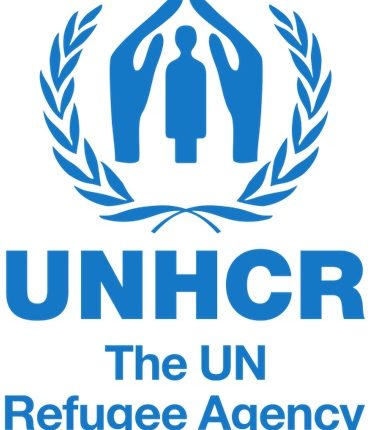While conflict persists across much of Sudan, pockets of relative safety have emerged, and to date over 1 million internally displaced Sudanese have made their way home. A further 320,000 people have crossed back into Sudan since last year, mainly from Egypt and South Sudan, some to assess the current situation in the country before deciding to return.
People are mainly going back to Khartoum, Sennar and Al Jazirah States, where the impact of more than two years of war is immense.
Regional Directors from UNHCR and IOM recently visited Khartoum and witnessed widespread devastation and a chronic lack of services for its remaining inhabitants. These include thousands of internally displaced Sudanese, as well as refugees and asylum-seekers hosted in Sudan, many of whom had been completely cut off from assistance since the war began. The visits followed an earlier mission to Sudan in February by the UNDP Regional Director aimed at developing long-term solutions for internally displaced people and refugees to secure livelihoods and basic services.
With humanitarian operations massively underfunded both inside Sudan and across neighbouring countries hosting those who fled, an urgent increase in financial support is needed. Humanitarian partners stress that recovery efforts must begin in areas that are becoming accessible and relatively safer. At the same time, funds are desperately needed to improve conditions for refugees in host countries.
“More than evidence of people’s desire to return to their homeland, these returns are a desperate call for an end to the war so that people can come back and rebuild their lives,” said Mamadou Dian Balde, Regional Refugee Coordinator for the Sudan crisis, who has just returned from Khartoum and Wadi Halfa at the border with Egypt. “Not only do they mark a hopeful but fragile shift, they also indicate already stretched host countries under increasing strain. We urge stronger international solidarity with the Sudanese people uprooted by this horrifying war and with the countries that have opened their doors to them.”
While fighting has subsided in the areas to which people are returning, conditions remain perilous. Public infrastructure – power supply lines, roads and drainage systems – have been completely destroyed. Schools and hospitals have been ruined or turned into collective shelters hosting displaced families. Lost or destroyed civil documents and the inability to replace them means people cannot access existing services. In addition to the dangers posed by unexploded ordnances, sexual violence and child rights violations are widespread.
Speaking from Port Sudan immediately after his visit to Khartoum, IOM Regional Director Othman Belbeisi underlined the need to support returnees in their voluntary choice to return:
“Those heading home are not passive survivors, they are vital to Sudan’s recovery. Yes, the humanitarian situation is dire, but with the right support, returnees can revive local economies, restore community life, and foster hope where it’s needed most. But they cannot do it alone. We must work alongside local partners to ensure that people return not to shattered systems, but to the foundations of peace, dignity, and opportunity. The thousands of people seeking to return home are driven by hope, resilience, and an enduring connection to their country. However, it is essential to emphasize that return must remain a voluntary, informed, and dignified choice.”
“Anyone who’s been forced from home knows the overwhelming urge to return,” said UNDP Director of the Regional Bureau for Arab States, Abdallah Al Dardari. “But without urgent action, people will be coming back to cities that are in ruins. We are in a race against time to clear the rubble and provide water, power, and health care. We also need to offer longer-term support for jobs and businesses and to address the unseen damage of war, including with counselling and legal aid for women victims of violence.”
Despite these returns, hundreds continue to flee both within Sudan and across its borders daily, due to ongoing conflict particularly in the Darfur and Kordofan regions. More than two years in, the people of Sudan have suffered enough and deserve an end to the fighting. A political solution to the crisis in Sudan must be found for a lasting peace that will allow people to fully return and rebuild their lives.
Distributed by APO Group on behalf of United Nations High Commissioner for Refugees (UNHCR).



